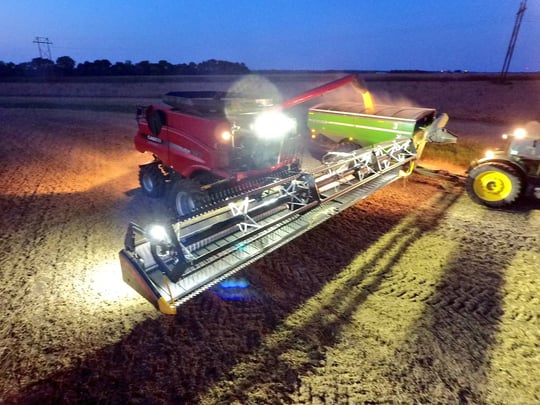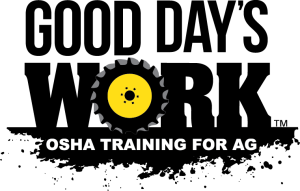Some of the world’s most disastrous accidents are related to sleep deprivation and fatigue; Exxon Valdez Oil Spill, Three Mile Island, Chernobyl, and The Challenger Explosion. These well-known global catastrophes are a reminder that sleep is utterly crucial.
When push comes to shove, many of us, when confronted with completing a task will extend our work day by first robbing our sleep time. Our sleep time is simply undervalued. The common link between these 5 disasters are; lowered alertness, inattention, and delayed reaction due to sleep deprivation. (also see Harvest Safety - Preventing Fatigue)

Plan to keep everyone safe and healthy throughout the harvest season.
A key component of a safe and healthy workplace is sleep. Getting enough sleep has so many benefits not only for you but for your whole organization. The American Academy of Sleep Medicine and the Sleep Research Society says adults should get 7 or more hours of sleep each night.
Challenge yourself to think differently. When demands for your time increase, rather than cutting into your sleep time, make sleep the priority and diligently protect your 7-8-hour sleep window. Reevaluate your activities and manage them differently. We are conditioned to rob our sleep time because it’s easy. Think differently despite having the best intentions to work longer for the cause. Failure to address your fatigue puts your human capital, equipment, crops, and livestock at risk.
Shawn Stevenson the author of the bestselling book Sleep Smarter says most people don’t get enough sleep simply because they don’t understand the benefits they’re getting from it. He covers sleep problems and provides 21 tips to get the best sleep ever.

What happens when you and your employees are well rested?
- Make better decisions – a good night’s sleep is critical to being alert, focused and productive during the day.
- More consistent and productive – well rested employees make better decisions which leads to more consistency, which in turn leads to better productivity throughout the harvest season. They tend to handle changes and overcome challenges with a better attitude.
- Fewer accidents – Numerous studies have shown that fatigued or sleep-deprived employees heighten the risk of workplace accidents and decreased productivity.
- Better overall health – rested employees benefit in long-term health when their bodies can rejuvenate during a good night’s sleep. On the flipside, sleep deprivation leads to immune system failures, diabetes, cancer, obesity, depression and memory loss to name a few.
- Less time off work – healthier employees develop better habits and have healthier lifestyles which in turn leads to fewer days off due to injury or illness.
- Less stress on other employees – when employees show up for work, less stress is put on other employees to cover for absent employees.
- Happier employees – research by Shawn Anchor, author of The Happiness Advantage has found that happier employees tend to be more creative, better at solving problems and are more effective collaborators.
Closing Thoughts
Sleep deprivation is a real self-imposed problem you can choose to manage. Think differently about your task management strategy as to not rob your sleep time. There are countless stories of accidents where people with good intentions pushed themselves to work long hours. It lowered their alertness, attentiveness, and with delayed reactions lead to a catastorphy.
Making sleep a priority is about a conscious choice to reserve 7-8 hours of sleep each night consistently. Educate your employees on the benefits of sleep prioritization for higher productivity, better overall health and a safer workplace.



